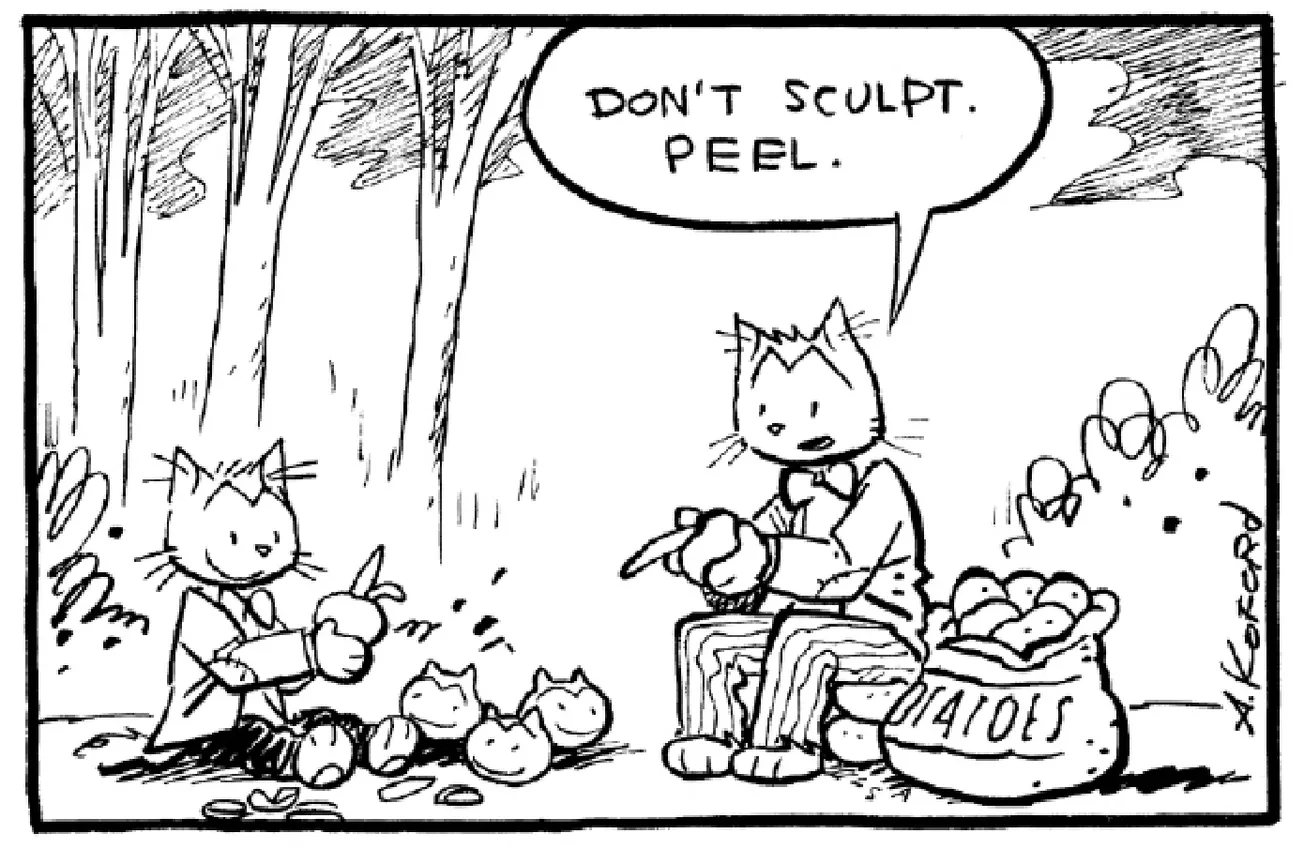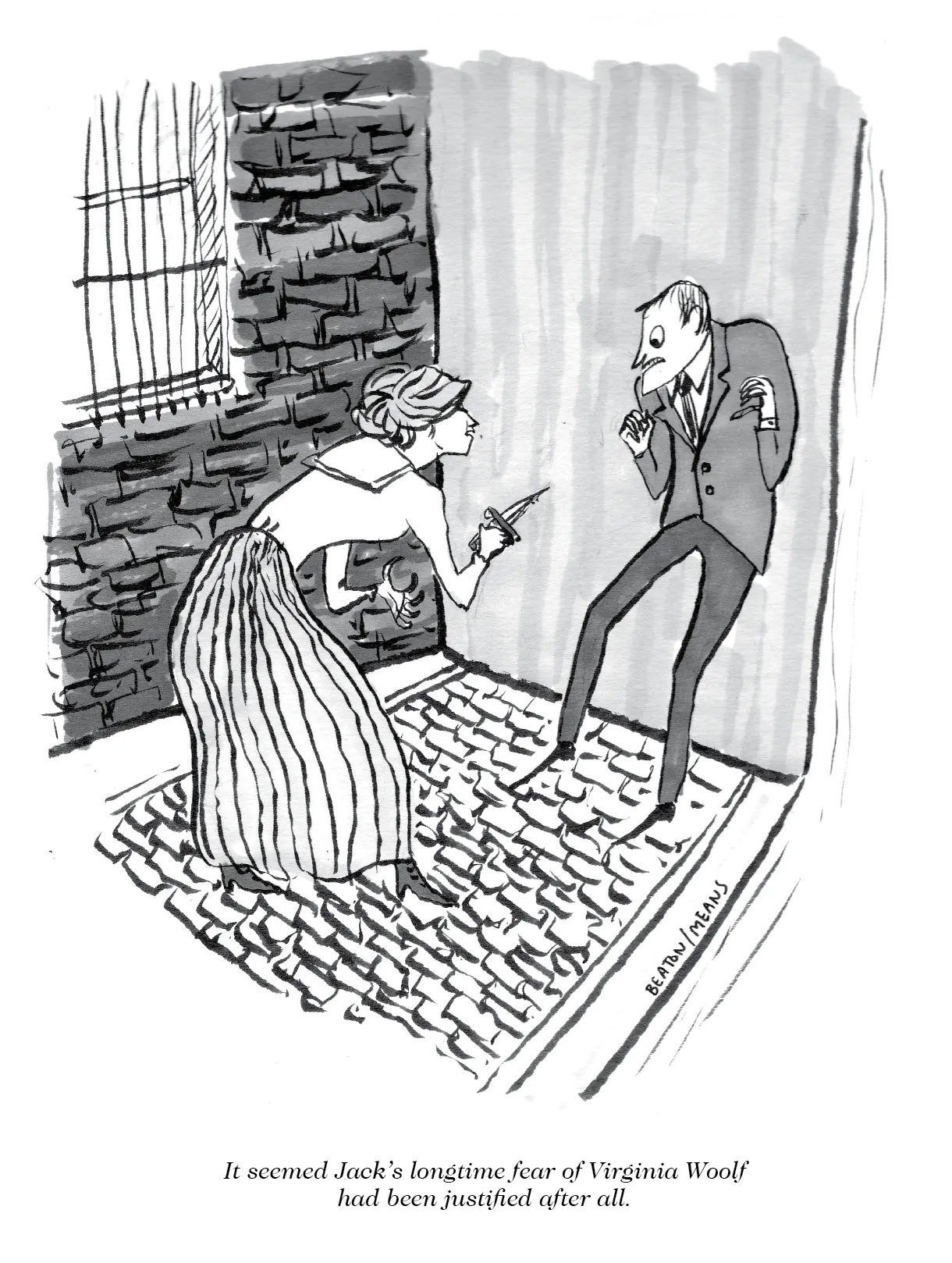I have written for TV, a bit, in the least lucrative ways. That is my particular genius.
Before I delve into the details, I want to admit something: I have a thing about scripts. I don’t think I can write them. Everybody says I can, they read it and laugh, but…there’s something about the form, the bareness of it, the telegraphic quality, that kinda freaks me out. I feel most myself in the connective tissue of what I do, not the jokes. (←sentences like that one)
Thanks for reading The American Bystander's Viral Load! Subscribe for free to receive new posts and support my work.
Or it could be something a bit more interesting. As you know, I have a slight case of cerebral palsy. If you met me, you would probably think I twisted my ankle, and you’d ask me how that happened, and I might give you some baroque lie, especially if I’d had more than one glass of champagne. (This is my cheap, everyday brand; this is my fancy one. Use this information wisely.)
Anyway, my CP means that whenever physical movement is involved, a significant portion of my brain’s processing power is allocated to not falling over. I improvised a lot better sitting down, for example, and I think that when I sit down to write scripted comedy, I feel a million times more comfortable with the static, talking jokes, because that’s what I can do myself, in my own life. That’s what I can relate to.
I have no idea what it’s like to be y’all; I look at some idiot riding an electric scooter and think, “Wow! A Jedi!”
Getting back to TV: my first brush with television came the summer after college. A nice man named Rob Taub reached out to The Record looking for help. He was producing a pilot at the local ABC affiliate, WTNH, and wanted writers who 1) knew cheap locations around New Haven and 2) could write a little. I went down to New York—I wore the Metro North out in 1991—met with Rob in a little office near Carnegie Hall, and got the job.
(By the way, that was a neighborhood with secret magic, back in those days; there were stacks of cheap rentable offices in buildings which, I suspect, have been torn down. Floor after drab floor, office after dingy office of writers, producers, agents, all on the make. A real “Broadway Danny Rose” vibe. Arnold Roth’s studio was in that neighborhood, and he and I would go to lunch and then to Sam Ash for clarinet reeds.)
The conceit of the show—called “Where’s the Party?”—was essentially “Playboy After Dark” played for laughs, but with Rob as the Hef-character. Remember that in 1991, it would’ve been impossible to see those old shows at the click of a mouse, and so the comedy of homage had a bit more freshness, and definitely more quirkiness than it does today. You were drawing from your distorted teenaged memories of the original, and your viewers were recalling their own.
My pay was (appropriately) minuscule, but Rob and his producing partner were mellow, funny gents, and the rest of the writing staff was a dream. Perhaps through my recommendation or perhaps through his own good taste, Rob hired Mark O’Donnell; and Mark brought in Patricia Marx. If I was to be exiled on tiny Pandateria like Julia the Elder, but Augustus said I could bring two people to entertain me for the rest of my life, Mark and Patty would be on my short list.
I thoroughly enjoyed “Where’s the Party?” My main contribution was a sketch wherein a band of hunter-gatherers roamed a post-nuclear wasteland carrying the defrosted head of their god, Walt Disney. This required a group of us to spend a whole sweaty Saturday afternoon capering around a field dressed in heavy black garbage bags. I remember having to tear armholes in a woman’s costume for her; she was an observant Jew and it was still the Sabbath.
“I can’t create or destroy,” she told me. “Tearing is destroying.”
“I understand,” I said, not understanding. And in this way, showbiz teaches generations of young goyim the ways of the wider world.
Rob was, and surely still is, a dreamer of a very pure type, and the hopes of many years rode on his show. Looking back, I so wished it had been picked up. I so wish I’d been older, my material better. But whatever my many failings as a writer, I did a fine job as an extra, mumbling “red leather yellow leather” dressed in a tuxedo, my statuesque college girlfriend at my side. Part of me would love to see that tape, and another part of me is undergoing full-body mortification even as I type.
“Where’s The Party?” did give me one especially wonderful memory. I was sitting in front of a Mac in that beige-on-cigarette-smoke office on 57th, trying to make the voiceover on “King Walt” seem even vaguely amusing, when I felt Mark looking over my shoulder. He was eating M&Ms.
At 22 I wasn’t a very good comedy writer, but I was good enough to recognize Mark as a genius. “Mark,” I said quietly, “is this any good?”
He didn’t say anything, but behind my ear I heard a slight tearing sound. Before I could turn around, I saw his long arm reach down and place a small bit of paper on my crotch. “KING-SIZE,” it read.
Mark became a mentor, and remained one through all his books and plays, his teaching at Yale, and writing the book to “Hairspray,” until his appallingly early death in 2012. When Barry Trotter hit a million, Kate and I flew to New York, and took Mark out to dinner. Where’s the Party? Wherever Mark O’Donnell was.

My most serious brush with the television business came in 1997, when my writing partner Jonathan Schwarz and I wrote jokes for “Weekend Update.” It’s hard to remember now, with 500 cable channels, ever-more streaming services, YouTube, TikTok, and whatever the fuck else, but in the 1990s there just weren’t that many comedy TV jobs to be had in New York City. There were two, maybe three late-night shows, and after The Comedy Channel and HA! Merged in 1991, just Comedy Central. And, of course, fat and happy at the top of the heap there was Saturday Night Live.
All the good jobs, the ones that paid Writer’s Guild rates, plus health insurance and pension—were held by graduates of The Harvard Lampoon. Occasionally a downtown standup from somewhere like Luna Lounge might sneak in, or an improvisor from Chicago with bona fides from Del (more about him later), but those few lucky folks were all over 30 with tons of connections…and mortgages to pay. If you were under thirty, it was dues-paying time. Unless you’d been on The Lampoon, or gone to high school with someone who later was on The Lampoon, or gone to high school with someone who later became A Star.
It was a weird time in comedy. Print was dead but didn’t know it yet, and the internet was still print-on-screen websites like Suck.com. People would tell me to move out to LA, but I was a non-driver (see also: palsy, cerebral) and besides, everyone who worked out there seemed miserable. (Later I would discover that was protective coloring.) But really I was trapped in a fantasy I’d picked up as a boy in St. Louis, which Yale had nurtured into a mania: I wanted to live not just the literary life, but the literary life as it had been lived back in the 1920s by my heroes, people like Robert Benchley. That’s why I loved living in the West Village so much, in a weird little studio apartment on West Eleventh that I couldn’t really afford. Every month was a race to $1050, and some months, I lost.
There really was a sense among those doing the hiring that The Lampoon conferred some kind of Secrets of Comedy upon anyone who entered the Castle. This, of course, drove Jon and I CRAZY; we had met tons of ‘Poonies and most of them seemed if anything profoundly un-committed to comedy, except as a way to make lawyer-sized money without having to go to law school. The younger me boiled with outrage (especially around the first of the month), but the older me sees now that they understood something important about life that I did not, and perhaps still don’t. The Onion people were the first to break the embargo, and things opened up rapidly after that—but by that time I’d moved to Chicago to get married. (Which proves that I wasn’t all dumb. Thursday was my 21st anniversary.)
The only way someone like Jon or I could get into SNL, maybe, was by submitting “Weekend Update” jokes, then sell enough to attract the attention of Lorne and/or minions, and get hired full-time. Every Wednesday a bunch of setups would be sent—faxed, to date the whole endeavor—to the secret cabal of freelancers and standups lucky enough to receive them. Jokes were due by Friday; the host would select their favorites; the best ones would be read during dress rehearsal at Studio 8H at 9:00 p.m., and then…you’d have to watch the show to see if you got any on.
When I say “set ups,” I mean a couple of pages of stuff like this:
“Lisa Marie Presley, the daughter of Elvis, has died at age 54.”
“This week, Southern California has been pounded by what meterologists call ‘an atmospheric river.’”
“Katie Porter, the California Congresswoman famous for explaining things using a whiteboard, is running for Diane Feinstein’s Senate seat in 2024.”
“This week, a new Congressman took his seat after swearing not on the Bible, but a rare Superman comic book.”
These kind of topical monologue jokes are wonderful fun to write, like doing crossword puzzles. Jon and I soon found that the best way to get on the show was to scour the news and come up with our own setups. I don’t know how many jokes the others were sending in, but it was a rare week that I didn’t schlep over at least a hundred.
The whole thing had a whiff of skullduggery around it, which appealed to my never-quite-totally-recessive Gangster Gene. It was technically against WGA rules to air material that wasn’t written by a Guild member, and if anyone asked, you weren’t supposed to admit you were doing it. The work around was although the setups were sent out by a PA on the show, the talent would read the material in their capacity as a performer. The jokes would be bought via the host’s loanout or production company, but they would air just as if they’ve been written by people actually hired by SNL. The only difference being that instead of $3000/week plus benefits, you got $250. Or in our case, $125 each.
Tough indeed to make it to $1050 every month, $125 at a time.
This being SNL, “getting on the faxer’s list” was like snagging a table at Elaine’s. It took us five years. As an adult, I want to go back in time, and scream at my younger self in the most supportive way possible: “Give up! Give up! You’re young and reasonably handsome and have more erections than you know what to do with! Stop this insanity and go have fun!” And to my credit, SNL did give me an uneasy feeling from the beginning; at least among the people I interacted with, comedy was the last thing they were thinking about. The paranoia was thick, the politics intense, their own monthly nut much more than $1050. The culture could be different now; I hope so. People who watch the show say it can be good, and it’s certainly more diverse than it was in the late 90s. I think probably the worst thing to ever happen to SNL—and the people on it—was how successful it got, so quickly. I can’t speak to how it is today, but back in 1997? It was comedy strangled on a velvet rope.
Still…dreams die hard, and SNL had been a dream job. I remember being six years old and walking out into the middle of a wild party which had stopped cold to watch SNL. This was the second season, and the thrill one felt around it—the topics, the performances, the style—was so strong, so authentic, that even a six-year-old could feel it. And twenty-two years later, I felt it even more as I rode up the elevator to the seventh floor of 30 Rock. This was the heart of American comedy, and Jon and I were in it. So what if we faced incredibly long odds for $125 per joke? So what if a punchline occasionally got delivered with all the grace of me riding an electric scooter? It was Saturday Night Live.
I don’t remember much about the offices; a step up from 57th Street, they were still pretty nondescript. And I was already quite sick with my Mysterious Stomach Ailment, so a trip all the way to 30 Rock from my apartment on West 11th was a bit dicey. I remember pushing past a startled Cheri Oteri as she came out of the toilet. “Sorry,” I said. “I want to get in quick so some of your talent will rub off.”
(She laughed, and I made it, so…win-win.)
Jon and I were very successful, much more than we had any right to expect. Colin—and later Tina—delivered a lot of our jokes. First one made it in, then two, and finally three in one ten-joke segment. Surely, Jon and I thought, we’d be hired next August.
When August came, we were indeed interviewed…but we didn’t get the job. I think they were worried about us taking up two slots; I know someone pulled me aside and asked quietly, casually, hypothetically, what I’d do if they hired just me. (Maybe they asked Jon the same question, as in the Prisoner’s Dilemma.) I laughed and said, “Jon and I are a package deal. Like a divorcee with a kid.”
“Who’s the kid?”
“Oh, me,” I said. “I’m shorter.”
As I recall, the spot went to someone’s college roommate. Calling to give me the bad news—kid or not, it always did seem to be me who fielded these calls—the producer said that we were “the most successful off-staff contributors in the history of the show.” I thanked him for the cold comfort. It was clear that with Tina and some others onboard, SNL was primed for an upswing, and Jon and I were heartbroken we weren’t a part of it. So heartbroken, in fact, we stopped writing our 100 free jokes a week. After a few weeks’ worth of setups went unanswered, this same producer called to ask why we weren’t submitting anymore. “We do this,” I explained, “to make money.”
He seemed genuinely shocked. “I don’t understand why you’re so mad. I mean, I never lied to you.”
I don’t recall what I said back. It wasn’t mean, so I clearly lied to him. In retrospect, I shouldn’t have said anything. I had just gotten my first eviction notice; I should’ve faxed it to him.
• • •
I have had a few other TV- and TV-adjacent adventures, like the time I was hired to help Alan King explain comedy on PBS, but this is too long already. My whole sad experience with SNL did provide me with a bellylaugh years later. In 2020, I was watching a documentary on Del Close, Chicago’s famed improv teacher. I was hanging on every word because, one, I’d been told some hilarious Del stories by my friend Garry Goodrow; and two, because I’d watched Kate go through all five levels of The Second City and ImprovOlympic in Chicago, in the years directly after Del’s death when he still hung over that scene like the smell of hash.
There is a part right at the end of the documentary, where the narrator talks about how hard it was for Del at the end of his life. To have taught so many funny people, only to watch them go on to great fame and fortune, while he remained obscure, known only to the comedy cognoscenti. As they went through the list of names—John Belushi—John Candy—Gilda Radner—Chris Farley—Tina Fey—
Guess who wrote that joke! For the princely sum of $125!
Ah well, at least I’ve got you guys. You are the cognoscenti, aren’t you? :-)





